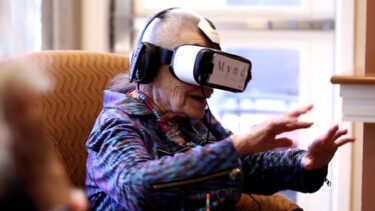According to a Chinese report, Pico Interactive (Pico 4) is running out of time. Owner Bytedance plans to shut down the VR headset maker.
Recently, apparently false rumors about a Pico 5 VR headset made the rounds. Now the rumor mill is turning in the other direction – and it would be a disaster for the VR industry if it turns out to be true.
According to a report from Equal Ocean, an international information services and investment research company founded in 2018 and based in China and the US, Bytedance (Tiktok) is looking to gradually shut down Pico Interactive, the VR company it bought in 2021.
According to the article, Pico’s boss – presumably Henry Zhou – was recently ordered to report to Bytedance’s chief executive, Zhang Yiming. Apparently, he was there to personally report on the state of affairs at Pico Interactive.
Bytedance unhappy with Pico’s business development
Bytedance is said to have clarified that Pico’s business had not developed as expected and that Pico Interactive would therefore be discontinued over time.
“The reason for this is that the hardware field in which PICO is located is not what ByteDance is good at, and its results have not met expectations for several years, and there is no hope for the future,” sources directly involved with Pico are said to have told Equal Ocean.
This fits in with several pieces of information in recent months. Back in November, the Chinese website Sina Technology reported that Pico was in crisis. According to the report, the sales target of one million Pico 4 headsets set by Pico CEO Zhou was not being met. It also claimed that employees were aware that some hardware and software was years behind the competition. In February, Pico confirmed it was making around 200 people redundant.
Reasons for the possible closure of Pico Interactive
A source close to Pico said that Pico had been too aggressive in entering an immature market. “Pico thinks it can create a market by spending a lot of money. But if you look at the current development of the VR industry, the adoption rate of VR products among home users is still small. Most consumers don’t even know what experience VR can bring.”
Virtual reality and augmented reality have never really lived up to the hype. While these technologies still have considerable potential, there are many challenges to their development and breakthrough into the fabled mass market: headsets are still too bulky and often too uncomfortable for prolonged use, but most importantly, there is a lack of content to keep users engaged. In addition, VR and AR need to be experienced to understand the benefits or potential, which means that adoption will be slow. All of this requires a lot of endurance in the market.
Bytedance bought Pico Interactive just two years ago for around $600 million. Although the Pico 4 was a significant step up from previous VR headsets, and the first serious competitor to Meta, Pico Interactive has struggled to gain traction in the West. It is still only officially available in East Asia and Europe. In Europe, at least, there has been no significant marketing, even though Tiktok would have been a perfect marketing platform.
Another reason for the lack of success in the West is the limited stand-alone content. In fact, the Pico 4 is only really useful as a PC VR headset, but this limits the target audience to those who own a PC.
Lack of staying power in a difficult market
Bytedance seems to have hoped for quick success – a common phenomenon in the VR industry, where big hypes always lead to completely unrealistic expectations. Apparently, the social media giant’s patience has already run out.
This is a bad sign for the VR market itself, especially as other major players are also struggling. Sony has not done anything with its Playstation VR 2 for a good six months, even though it is an excellent VR headset for PS5 gaming.
Currently, only Meta is really pushing VR and AR. However, the release of Quest 3 has not been without its difficulties: Widespread supply issues suggest that the release was not based on a confident market forecast. At Connect 2023, Meta CEO Zuckerberg also skirted the XR issue in just ten minutes.
Competition is particularly important in the mixed reality space because the proliferation of immersive technologies requires choice and content. The fewer of these choices available, the slower growth will be. If the report is true, then today is a sad day for XR.
We’ve contacted Pico for comment and will update this article if we receive a statement.
Source: Mixed News






